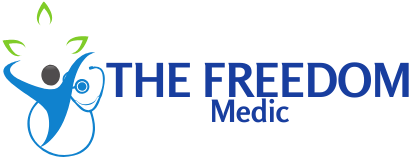Embarking on a journey of self-awareness and self-reflection is a crucial part of personal growth and development. Understanding yourself fully and being able to critically analyze your thoughts, emotions, and behaviors can lead to a more fulfilling and purposeful life. To develop a strong sense of self-awareness and self-reflection, you must be willing to face the uncomfortable truths about yourself and be open to self-discovery. This blog post will explore some of the best ways to develop these essential skills, allowing you to gain deeper insights into your own thoughts, feelings, and actions.
Cultivating Mindfulness
For you to develop a strong sense of self-awareness and self-reflection, cultivating mindfulness is crucial. Mindfulness involves paying attention to the present moment without judgment. It allows you to become more aware of your thoughts, feelings, and bodily sensations, which is essential for developing a deeper understanding of yourself.
Mindfulness Meditation Practices
One of the best ways to cultivate mindfulness is through mindfulness meditation practices. This involves setting aside time each day to sit quietly and focus your attention on your breath, bodily sensations, or a specific object. During meditation, you become more aware of the constant stream of thoughts and feelings that run through your mind, allowing you to develop the ability to observe them without getting caught up in them. This practice can help you become more grounded and present, leading to greater self-awareness and self-reflection.
Benefits of Mindfulness for Self-Awareness
The benefits of mindfulness for self-awareness are numerous. By practicing mindfulness, you can develop a greater understanding of your thought patterns and emotional reactions. This can lead to a heightened awareness of your strengths and weaknesses, allowing you to make more informed decisions in your personal and professional life. Additionally, mindfulness can help you better recognize and manage stress, anxiety, and other negative emotions, leading to a more balanced and resilient state of mind. Overall, mindfulness can significantly enhance your ability to engage in self-reflection and gain a deeper understanding of yourself.
Journaling for Self-Discovery
One of the most powerful tools for developing self-awareness and self-reflection is through the practice of journaling. Keeping a journal allows you to explore your thoughts, emotions, and experiences in a private, non-judgmental space. This process of self-expression can help you gain clarity about your values, beliefs, and goals, and ultimately lead to a deeper understanding of yourself. If you want to know more about self-awareness and how to understand yourself better, you can read the article Self-Awareness – Learning How to Understand Yourself.
Reflective Journaling Techniques
Reflective journaling involves writing down your thoughts and feelings about specific experiences or events. You can use prompts, such as “What am I feeling right now?” or “What did I learn from this situation?” to guide your reflection. This practice allows you to gain insight into your emotions and reactions, helping you identify patterns in your thoughts and behaviors.
Analyzing Patterns and Behaviors Through Writing
Journaling also enables you to analyze patterns and behaviors by looking back on past entries. You may start to notice recurring themes, triggers, and reactions that provide valuable information about your inner world. Identifying these patterns can help you understand why you think and act the way you do, and ultimately lead to personal growth and development.
The Role of Feedback in Self-Awareness
Now, let’s talk about the role of feedback in developing self-awareness. Constructive feedback from others is a valuable tool for gaining insights into your strengths and weaknesses. It provides an opportunity for self-reflection and growth, helping you to understand how your behavior and actions are perceived by others. Seeking feedback allows you to gain a better understanding of yourself and your impact on those around you. For more information on how to improve your self-awareness, check out this article on How to Improve Self-Awareness (With Steps and Tips).
Seeking Constructive Feedback
When seeking feedback, it’s important to ask for specific examples and actionable suggestions for improvement. Remember that the goal is not just to receive praise, but to gain a deeper understanding of how you can grow. Be open and receptive to feedback, even if it is difficult to hear. By doing so, you can identify blind spots in your self-perception and make meaningful changes to your behavior and communication style.
Learning from Criticism and Praise
Both criticism and praise can provide valuable insights into your strengths and areas for improvement. Embrace criticism as an opportunity for growth, and use it to challenge yourself to become a better version of yourself. Similarly, acknowledge and internalize praise as a confirmation of your strengths and use it to build confidence in your abilities. By learning from both, you can further develop your self-awareness and personal growth.

Integrating Self-Awareness into Daily Life
After learning about the importance of self-awareness and how to develop it, you may wonder how you can integrate this crucial skill into your daily life. One effective way to continue developing self-awareness is to incorporate simple practices and exercises into your routine. According to BetterUp, self-awareness involves the ability to recognize your emotions, thoughts, and values, and understand how they influence your behavior. By integrating self-awareness into your daily life, you can enhance your overall well-being and personal growth.
Self-Awareness Exercises and Activities
Self-awareness exercises and activities can help you gain valuable insights into your thoughts, emotions, and behaviors. These may include practicing mindfulness and meditation, keeping a journal to track your thoughts and feelings, or seeking feedback from others to gain a different perspective on your strengths and areas for improvement. Engaging in these activities can help you develop a deeper understanding of yourself and how you interact with the world around you.
Building a Routine for Continuous Self-Reflection
Building a routine for continuous self-reflection is essential for maintaining and strengthening your self-awareness. This involves setting aside dedicated time each day for reflection and introspection. This can be achieved through practices such as daily journaling, meditation, or simply taking a few moments to assess your emotions and reactions to various situations. By consistently engaging in self-reflection, you can identify patterns in your thoughts and behaviors, allowing you to make intentional changes and growth.
Developing a Strong Sense of Self-Awareness and Self-Reflection
Following this exploration of self-awareness and self-reflection, it is clear that the best ways to develop a strong sense of self-awareness and self-reflection include practicing mindfulness, finding time for self-reflection, seeking feedback from others, and being open to personal growth. By incorporating these strategies into your daily routine, you can enhance your understanding of yourself, recognize your strengths and weaknesses, and ultimately strive for personal and professional development.


